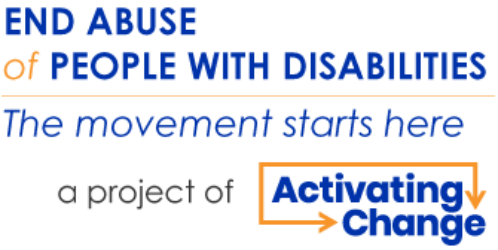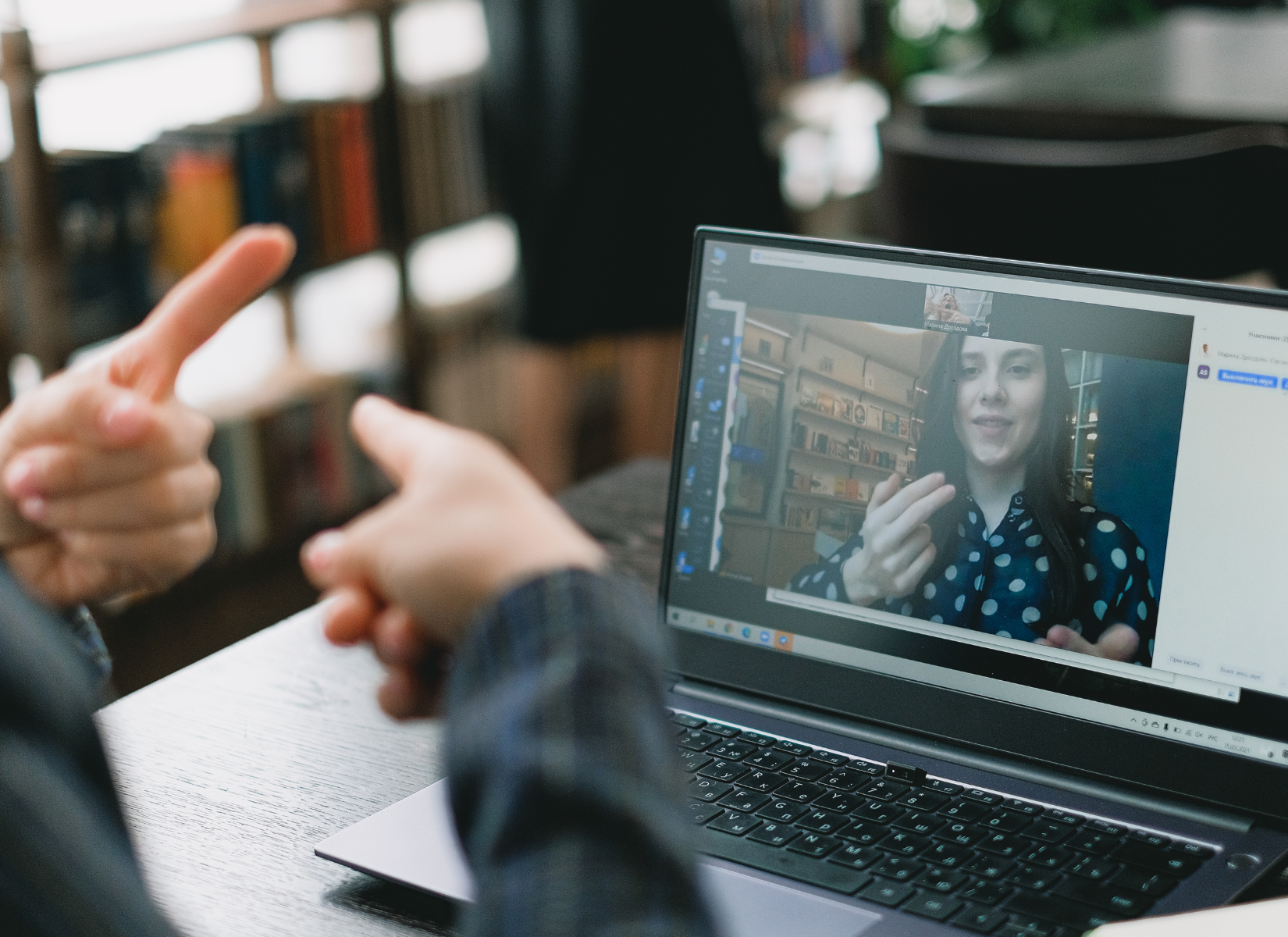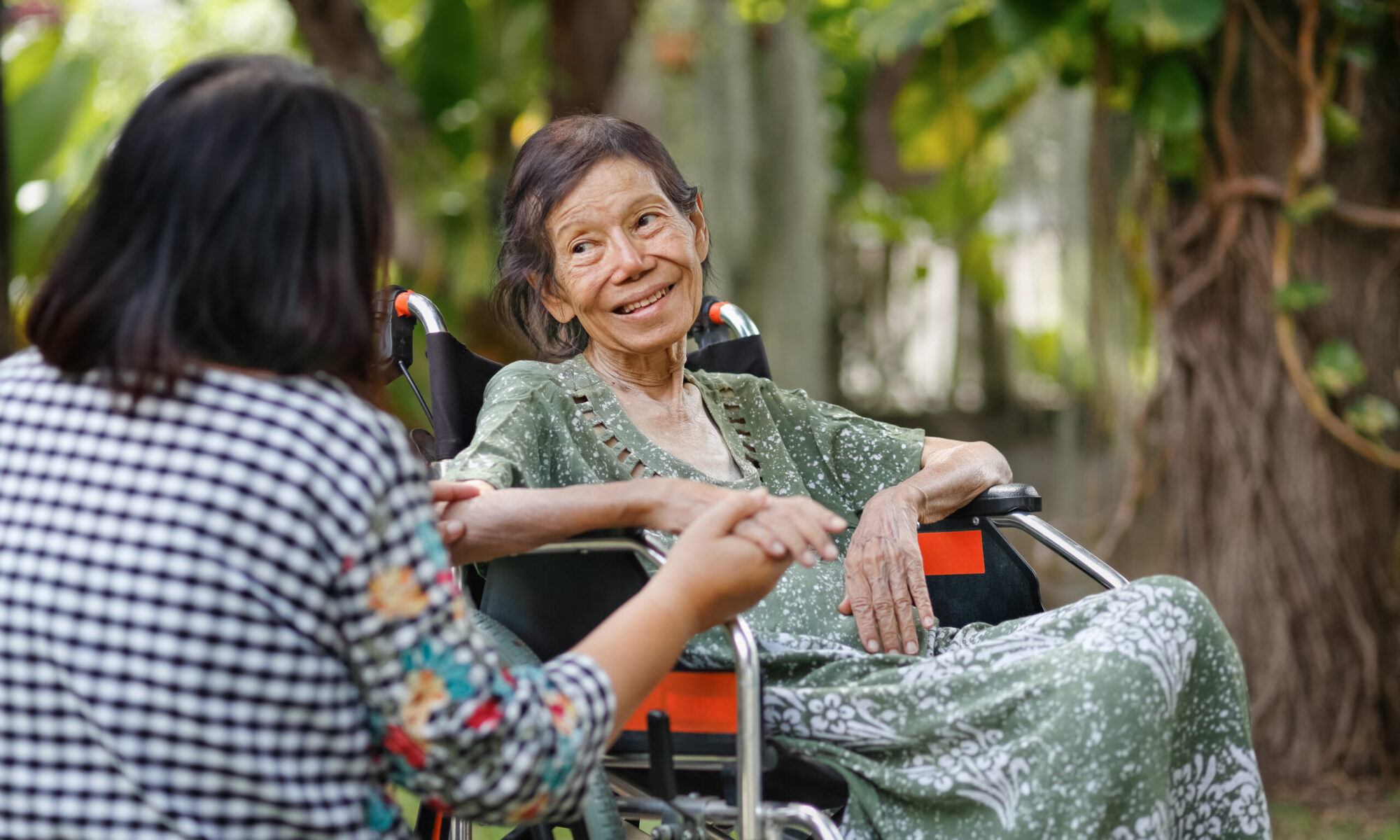Esther Fass and Nancy Smith from Activating Change will provide an overview of Activating Change’s new remote sign language interpretation service. The new service provides remote sign language interpretation services – free of charge – to victim service providers in the United States serving Deaf victims and their families.
Victim service providers must meet eligibility requirements and apply to participate. Esther and Nancy will cover who is eligible to receive services, how the service works and the technology providers need to connect with interpreters remotely.
They will also provide information on how to apply and review important dates. In addition, you will be able to ask Esther and Nancy questions about participating in the service and the application process.
In honor of Elder Abuse Awareness month, Sandra Harrell, from Activating Change, will discuss the unique dynamics of abuse experienced by two communities of older adults with disabilities: those who are formerly able-bodied and are aging into disability and those with early-acquired disabilities who are aging with disabilities. Sandra will also discuss the barriers to services these survivor communities experience, as well as the implications for service providers.
Nearly 3 million people in the United States identify as “American Indian or Alaskan Native” (2010 U.S. Census). Due to systemic and historical oppression, individuals within these communities experience high rates of sexual assault and have high rates of disability. Indigenous survivors of sexual assault who also have a disability encounter unique barriers in their healing journey. During this webinar, Olga Trujillo of Activating Change will be joined by Nicole Matthews of the Minnesota Indian Women’s Sexual Assault Coalition to discuss these barriers, strategies for providing support and opportunities for change.
Domestic Violence Awareness Month was established in October of 1987. Since then, across the country, domestic violence advocates have organized awareness-raising events in support of domestic violence survivors, to highlight the rates of domestic violence in their communities and to unite individuals and organizations working on these issues. During this webinar, staff from Activating Change will provide guidance on creating accessible social media, accessible websites, and accessible in-person events.
October is Domestic Violence Awareness Month and in support of survivors everywhere, we are dedicating this month’s End Abuse of People with Disabilities webinar to lifting up promising practices for serving domestic violence survivors with disabilities. Featuring a panel comprised of service providers addressing gaps in their own organizations, this webinar will explore the unique barriers that people with disabilities have to navigate when seeking healing and the strategies that advocates can employ to proactively remove those barriers. Specifically, the panelists will explore the civil-legal needs of survivors with disabilities, the needs of survivors who acquire a disability through domestic violence, and the unique needs of Deaf survivors. The panelists will provide practical guidance from their own experience that will help you ensure that survivors with disabilities feel respected and supported within your programs.
When survivors with disabilities and Deaf survivors engage with your organization, they are necessarily engaging with the policies that guide the delivery of your services. Failure to account for the lived experiences of survivors with disabilities in your organizational polices results in delays in service provision, confusion among staff about what is allowed, safety concerns among survivors, the provision of inadequate or unsafe services, or the denial of services completely.
How would your disability organization respond? Would you be prepared to address the safety needs of a survivor whose personal care worker or staff member is the one hurting them? What about when the survivor and the person who has hurt them are both receiving services from your organization? Do your mandatory reporting policies create a barrier to survivors reaching out to you for help?
This webinar will examine policies that disability service providers should have in place, including serving both the survivor and person who is abusing them, mandatory reporting and addressing safety when staff and/or personal care workers are implicated as the abusive party.
When survivors with disabilities and Deaf survivors engage with your victim service organization or disability program, they are necessarily engaging with the policies that guide the delivery of your services. Regardless of they type of organization, failure to account for the lived experiences of survivors with disabilities in your organizational polices results in delays in service provision, confusion among staff about what is allowed, safety concerns among survivors, the provision of inadequate or unsafe services, or the denial of services completely.
Both victim service and disability organizations have policies in place that can impact survivors with disabilities. However, implications for organizational policies differ since victim service organizations primarily need to enhance their policies to account for accessibility and disability organizations need to enhance their policies to account for safety. To adequately address policies at both victim service organizations and disability organizations, Centering Survivors with Disabilities in Your Organizational Policies is being held over two separate webinars. The first, being held on August 23rd focuses on polices at victim service organizations. The second will focus on policies at disability organization and will be held on August 30th.
Victim Service Organizations
Are you prepared to allow a survivor with a disability have a paid personal care attendant provide services in your shelter? Have you considered how to address the tension between the need to have a service animal in shelter and other residents’ fear or allergies? Is your organization prepared to serve an adult survivor that has a guardian?
Disability Organizations
Are you prepared to address the safety needs of a survivor whose personal care worker or staff member is the one hurting them? What about when the survivor and the person who has hurt them are both receiving services from your organization? Do your mandatory reporting policies create a barrier to survivors reaching out to you for help?
This webinar will examine key policies that victim service organizations should have in place to account for unique circumstances in the lives of survivors with disabilities, including personal care attendants, service animals and guardianship.
Technology is integral in the daily lives of all people. This session will explore the range of assistive technology used by people with disabilities, including common terms, definitions, and differences.
The Assistive Technology Industry Association defines assistive technology as “any item, piece of equipment, software program, or product system that is used to increase, maintain or improve the functional capabilities of persons with disabilities.”
This discussion will focus on how abusers may misuse that technology as a tactic of abuse and how people with disabilities can incorporate assistive technology into their safety planning. This session will help service providers better understand how to utilize assistive technology to remove barriers to safely and effectively serve survivors with disabilities and Deaf survivors.
April is Sexual Assault Awareness Month and in support of survivors everywhere, we are dedicating this month’s End Abuse of People with Disabilities webinar to lifting up promising practices for serving survivors with disabilities. Featuring a panel comprised of a survivor with a disability, a national expert, and a local advocate, this webinar will explore the unique barriers that people with disabilities have to navigate when seeking healing and the strategies that advocates can employ to proactively remove those barriers. The panelists will provide practical guidance from their own experience that will help you ensure that survivors with disabilities feel respected and supported within your programs
Join panelists, Cathy Saunders, Self-Advocate with Illinois Imagines, Cierra Olivia Thomas-Williams, Prevention Specialist at Indiana Coalition Against Domestic Violence and Heidi Sue LeBoeuf, Counseling Director at Pathways For Change and facilitator Sandra Harrell, Associate Director, Center on Victimization and Safety for this discussion.
Conferences are a place where advocates and leaders in the anti-violence movement can learn more about trends and strategies as well as network with other colleagues. For Deaf advocates, there are access considerations to ensure they can fully participate. This webinar will discuss how staff from the Resource Sharing Project at the Iowa Coalition Against Sexual Assault and the Center on Victimization and Safety at the Vera Institute of Justice partnered together during the Embracing Change & Growth Conference that took place in Chicago in March 2019.
Staff will share the approaches utilized to ensure full inclusiveness and language access for Deaf participants, including the provision of both hearing and Deaf American Sign Language (ASL) interpreters. They will share lessons learned from the from the conference, discuss what our partnership looked like, including what made it a successful partnership, and share recommendations for your future in-person event planning for access and inclusion. If you have always wondered about the successful ingredients for maximum language access for Deaf participants at your in-person events, this is the webinar for you!
Join panelists Cat Fribley, Kris Bein, and Valerie Davis from the Resource Sharing Project and Center on Victimization and Safety staff Raylene Lotz, Liam Esposito, and Nancy Smith, as well as American Sign Language Interpreter, Amber Hodson, for this discussion.


